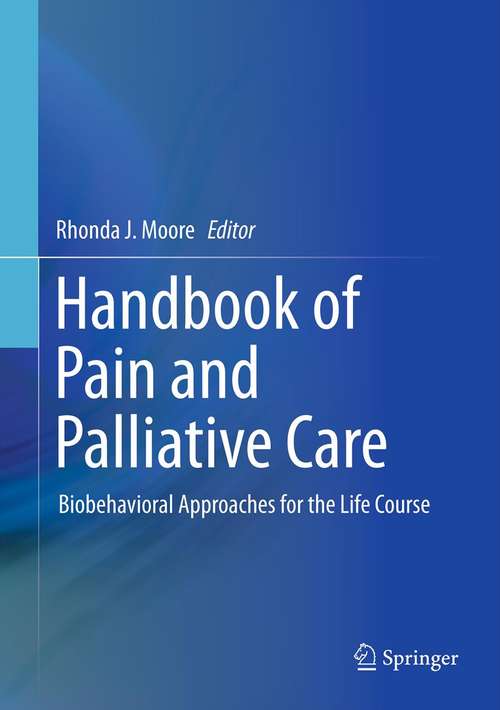Synopsis
Handbook of Pain and Palliative Care:Biobehavioral Approaches for the Life Course Rhonda J. Moore, editor This book takes both a biobehavioral and a lifespan approach to understanding long-term and chronic pain, and intervening to optimize patients' functioning. Rich in clinical diversity, chapters explore emerging areas of interest (computer-based interventions, fibromyalgia, stress), ongoing concerns (cancer pain, low back pain), and special populations (pediatric, elderly, military). This coverage provides readers with a knowledge base in assessment, treatment, and management that is up to date, practice strengthening, and forward looking. Subject areas featured in the Handbook include: Patient-practitioner communication Assessment tools and strategies Common pain conditions across the lifespan Biobehavioral mechanisms of chronic pain Pharmaceutical, neurological, and rehabilitative interventions Psychosocial, complementary/alternative, narrative, and spiritual approaches Ethical issue and future directions With the rise of integrative perspective and the emphasis on overall quality of life rather than discrete symptoms, pain management is gaining importance across medical disciplines. Handbook of Pain and Palliative Care stands out as a one-stop reference for a range of professionals, including health practitioners specializing in pain management or palliative care, clinical and health psychologists, public health professionals, and clinicians and administrators in long-term care and hospice.usculoskeletal pain. Finally, the text discusses broader issues in chronic pain management, including psychosocial issues associated with chronic pain, spiritual dimensions of chronic pain and suffering, contributions from the humanities and social sciences in terms of understanding the chronic pain experience, and highlights ethical issues in pain and palliative care. The collaborators for this project are from diverse cultural and biomedical settings, including the United Kingdom, United States, Italy, England, Singapore, Canada, Australia, and Norway. The expertise in this volume span the fields of clinical medicine, neuroscience, neurosurgery, literature, anthropology, art, neuroanatomy, pediatrics, gerontology, pain imaging, health disparities, transportation, rehabilitation, palliative medicine, philanthropy, the medical humanities, oncology, physiology, anesthesiology, pharmacology, genetics, stress management, psychology, dentistry, complementary and alternative medicine, spiritual care, nursing, pain policy, and clinical ethics. Whilst highly multidisciplinary, authors explore the evidence base for chronic pain and palliative care in their individual professional areas and each has provided valuable insights with the hope that it will result in improved pain control and palliative care.
